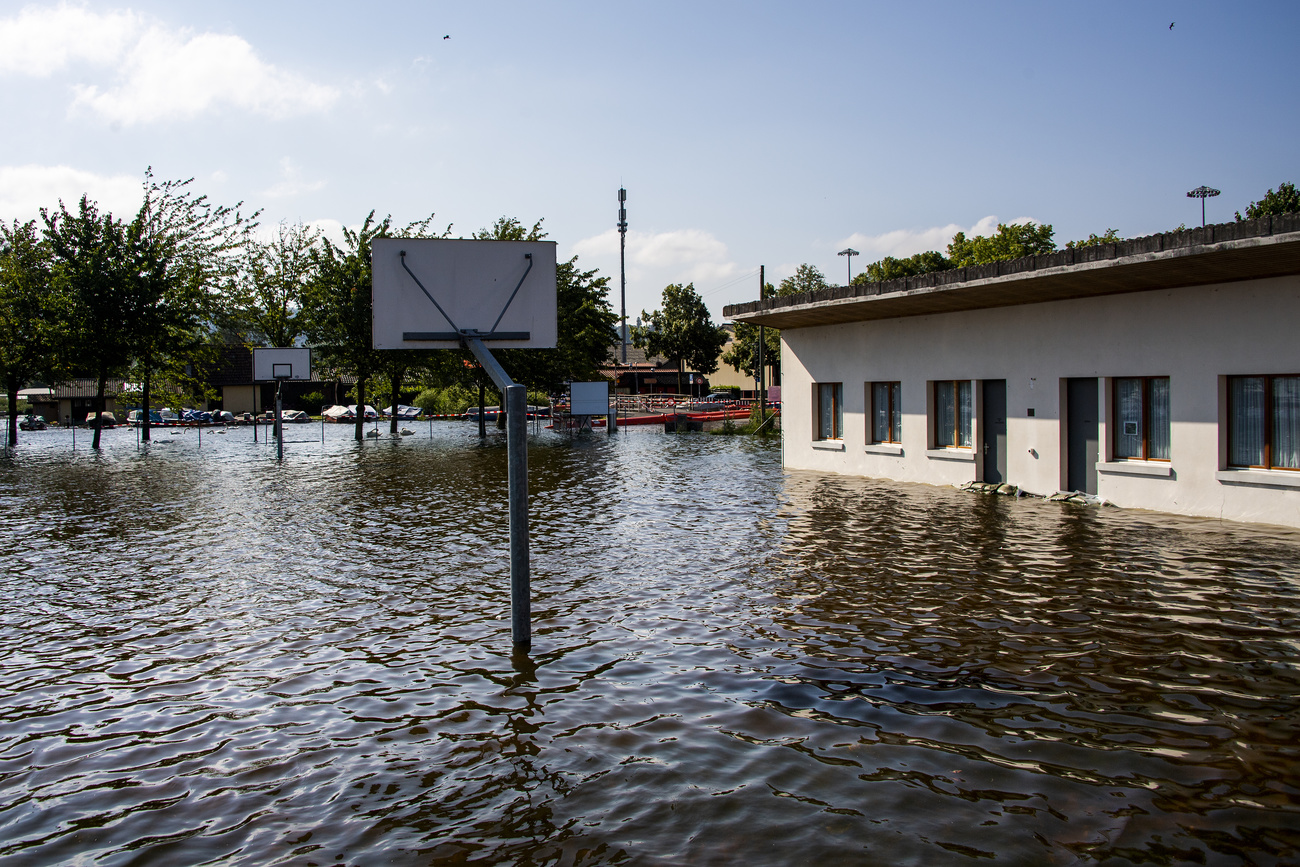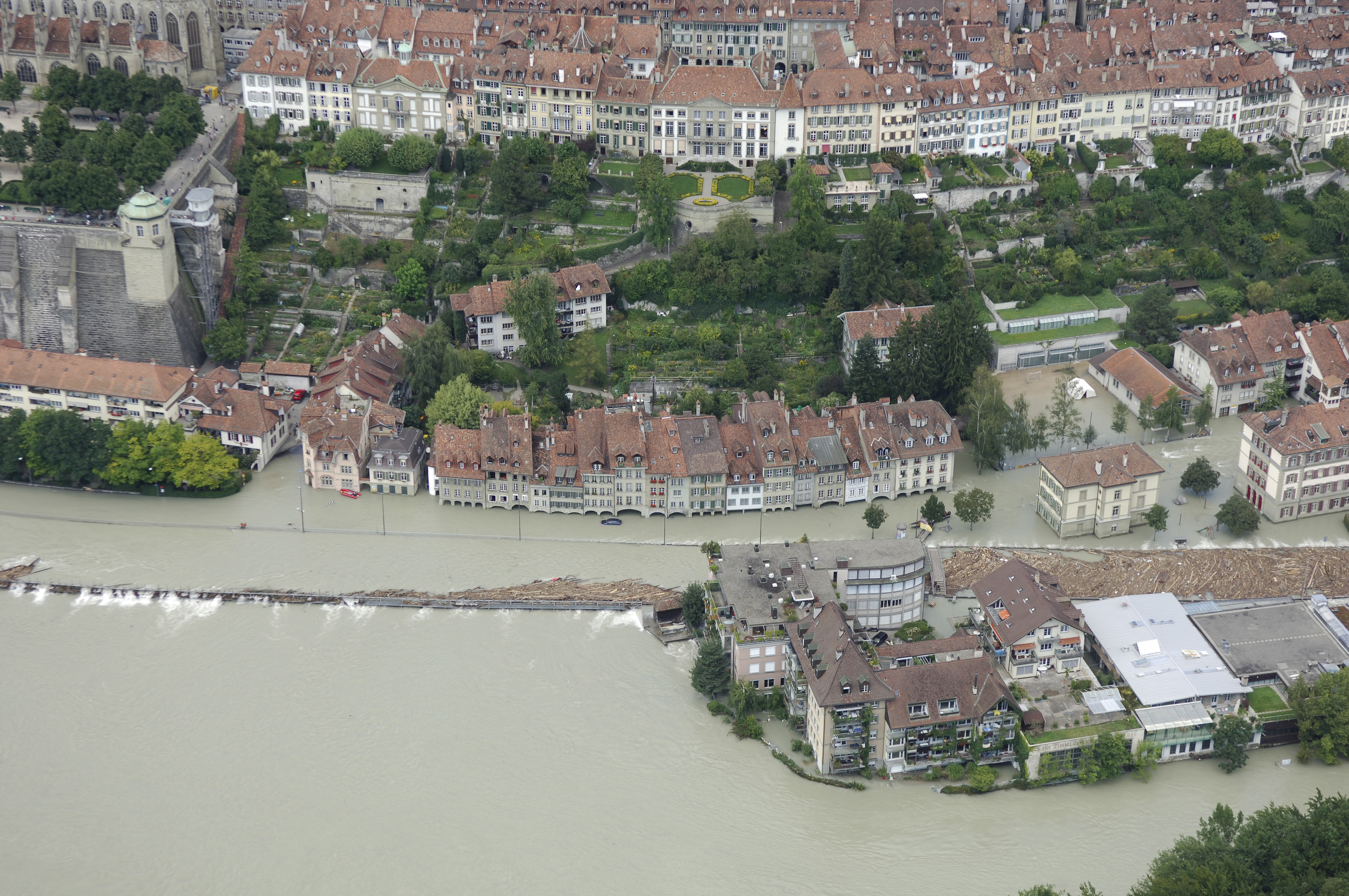
Water levels drop at most Swiss lakes and rivers

Water levels across Switzerland dropped on Sunday after unrelenting rain brought many lakes and rivers to dangerous highs and burst banks. Unlike Germany and Belgium, where dramatic flooding killed more than 180 people, the Alpine nation suffered no weather-related fatalities this week.
The situation is considered stable but risky in several parts of Switzerland. The highest danger warning (5) remains in place for Lake Lucerne, Lake Thun and Lake Biel although water levels at all three are on the decline. The River Aare, which cuts across the capital Bern, has also stabilised.
Lake Neuchatel swelled further on Sunday morning with water levels reaching 430.69 metres. That figure marked a 12-centimetre increase in 24 hours that broke records and puts it well above the flood level. In the western canton of Vaud, Lake Morat hit 430.67 metres. All navigation is forbidden at these two lakes.

Meteorologists expect the weather to remain mostly dry across Switzerland and attain summer temperatures in the coming week. Fears of another “flood of the century” have dissipated although it might take several days for rivers and lakes to return to normal.
Inundations in 2005 claimed seven lives and brought chaos to central Switzerland. There have been no deaths reported by police in this round of bad weather, which also hit central cantons particularly hard.
Financial devastation
The financial cost of the storms, floods and hailstorms of recent weeks is likely to rival but not surpass those of the 2005 “storm of the century”, according to insurers quoted by the NZZ am Sonntag and Le Matin Dimanche.
The Association of Cantonal Building Insurers has so far reported damages amounting to at least CHF450 million ($490 million) – on track to top the costs caused by heavy rains in 2007, the second-most expensive weather catastrophe after the storm of 2005.
Nuclear sites study
The association comprises 18 cantonal institutions which insure approximately 1.9 million buildings across the country (roughly 70% of all buildings).
The SonntagsZeitung, meanwhile, surfaced a February study evaluating the risks at five nuclear power plant sites in Switzerland in the event of extreme floodingExternal link of the River Aare.
Many experts link extreme weather patterns to climate change. While Europe mourns those killed in flooding this week, the United States and Canada are in the grips of a deadly heatwave.
Flooding in Western Europe has claimed at least 180 lives, according to AFP news agency. The worst affected country is Germany where the death toll reached 156 on Sunday. That figure could rise as rescue work continues.
Belgium’s crisis centre has urged people in the south and east of the country to avoid all travel. The death toll from swollen and burst rivers and flash floods there is 27. Scores of people remain unreachable or missing.
Downstream in the Netherlands, flooding rivers damaged many houses in the southern province of Limburg, where several care homes were evacuated. No fatalities have been reported by Dutch authorities.

More
Spotting flood risks early saves lives

In compliance with the JTI standards
More: SWI swissinfo.ch certified by the Journalism Trust Initiative




























You can find an overview of ongoing debates with our journalists here . Please join us!
If you want to start a conversation about a topic raised in this article or want to report factual errors, email us at english@swissinfo.ch.